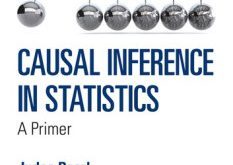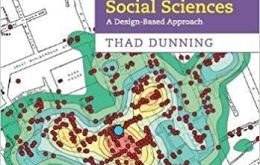Econometrics — a matter of BELIEF and FAITH Everybody who takes regression analysis course, studies the assumptions of regression model. But nobody knows why, because after reading about the axioms, they are rarely mentioned. But the assumptions are important, because if any one assumption is wrong, the regression is not valid, and the interpretations can be completely wrong. In order to have a valid regression model, you must have right regressors, the...
Read More »Econometrics and the Axiom of Omniscience
Econometrics and the Axiom of Omniscience Most work in econometrics and regression analysis is — still — made on the assumption that the researcher has a theoretical model that is ‘true.’ Based on this belief of having a correct specification for an econometric model or running a regression, one proceeds as if the only problem remaining to solve have to do with measurement and observation. When things sound to good to be true, they usually aren’t. And that...
Read More »The logic of instrumental variables (student stuff)
The logic of instrumental variables (student stuff) [embedded content]
Read More »Macroeconometrics — the science of hubris
Macroeconometrics — the science of hubris When a macroeconometrician uses regression, he or she is implicitly saying, in effect, that the third quarter of 2007 is the same as the first quarter of 1988, once all factors that might be different between those two quarters are controlled for. The idea is that the economist is conducting an intertemporal quasi-experiment. But because there is only one economic history with which to work, there is a lack of...
Read More »Selection bias and the elite school illusion
Selection bias and the elite school illusion [embedded content] A great set of lectures — but I still warn my students that regression-based averages is something we have reasons to be cautious about. Suppose we want to estimate the average causal effect of a dummy variable (T) on an observed outcome variable (O). In a usual regression context one would apply an ordinary least squares estimator (OLS) in trying to get an unbiased and consistent estimate: O...
Read More »R A Fisher — the father of modern statistics (1/4)
R A Fisher — the father of modern statistics (1/4) [embedded content]
Read More »Causality — the back-door criterion
Causality — the back-door criterion [embedded content]
Read More »Working with DAGs (wonkish)
Working with DAGs (wonkish) [embedded content]
Read More »On causality and econometrics
On causality and econometrics The point is that a superficial analysis, which only looks at the numbers, without attempting to assess the underlying causal structures, cannot lead to a satisfactory data analysis … We must go out into the real world and look at the structural details of how events occur … The idea that the numbers by themselves can provide us with causal information is false. It is also false that a meaningful analysis of data can be done...
Read More »Experiments in social sciences
Experiments in social sciences How, then, can social scientists best make inferences about causal effects? One option is true experimentation … Random assignment ensures that any differences in outcomes between the groups are due either to chance error or to the causal effect … If the experiment were to be repeated over and over, the groups would not differ, on average, in the values of potential confounders. Thus, the average of the average difference of...
Read More » Heterodox
Heterodox





